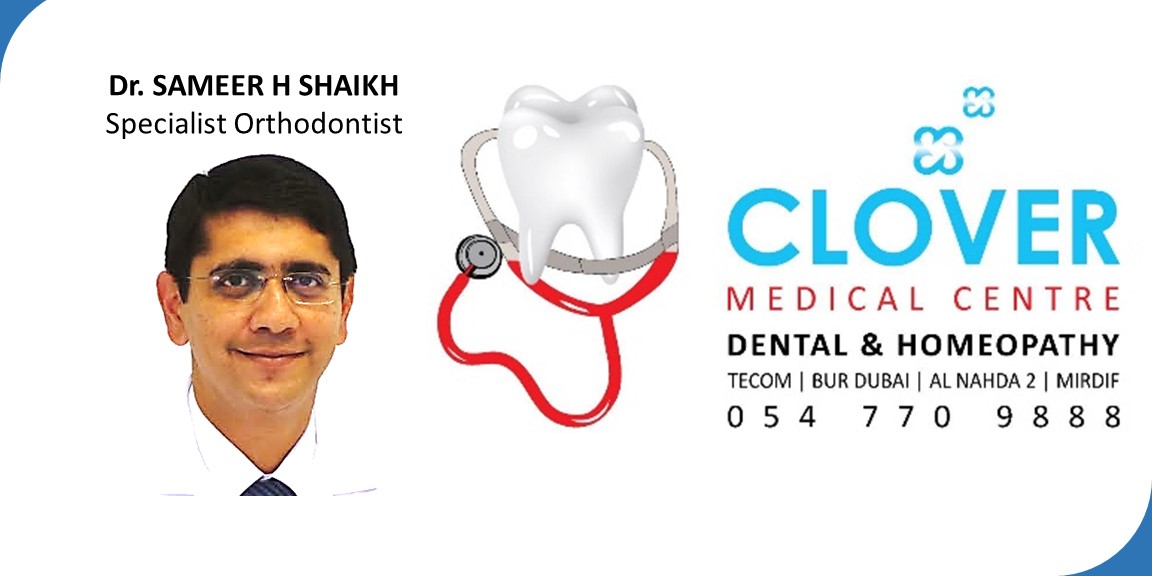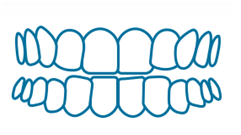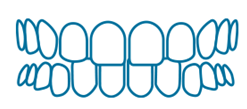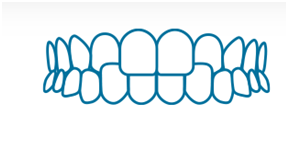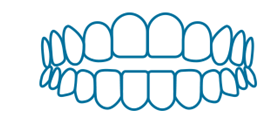DEEPBITE
When there is excessive overlap between the front teeth it’s known as deep bite. A normal healthy overbite should be around1-2mm. There are several habits which can cause a bite to worsen, such as lip biting, nail biting, thumb sucking or teeth grinding. If not properly treated, a deep bite can lead to significant teeth and gum damage, headaches, TMJ disorders.
CROWDING
When there isn’t enough space in the jaw to fit all of the teeth, we call it crowding. Often, in an effort to squeeze in the limited space, teeth will overlap, shift out of line or twist. Crowding can be caused by losing primary teeth too early or an imbalance in the tooth-to-jaw size ratio. Crowded teeth are harder to brush and floss properly, which increases the risk of tooth decay and gum disease
SPACING
Spacing is a condition in which the teeth are separated by large gaps. It can be caused by teeth that are small sized, certain oral habits, such as prolonged thumb sucking, or missing teeth. Teeth spacing can be a cosmetic issue as well as a functional one. Spacing can also have a negative impact on the health of your gums.
CROSSBITE
If some of the upper teeth sit inside of some of the lower teeth when the jaws are closed together, it’s known as a crossbite. Crossbite can be caused by either tooth position, jaw position or a combination of both.Crossbites can occur in the front teeth (called anterior crossbite) or in the back teeth (called posterior crossbite).Patients often compensate by shifting their jaw to one side, which can cause permanent changes in the facial structure if not corrected.
OPEN BITE
Open bite occurs when the upper and lower teeth do not come in contact when the mouth is closed. This affects the ability to bit and chew the food. Speaking may also be difficult. Open bites are typically caused by genetics or oral habits, including tongue thrusting and prolonged pacifier use or thumb sucking.
